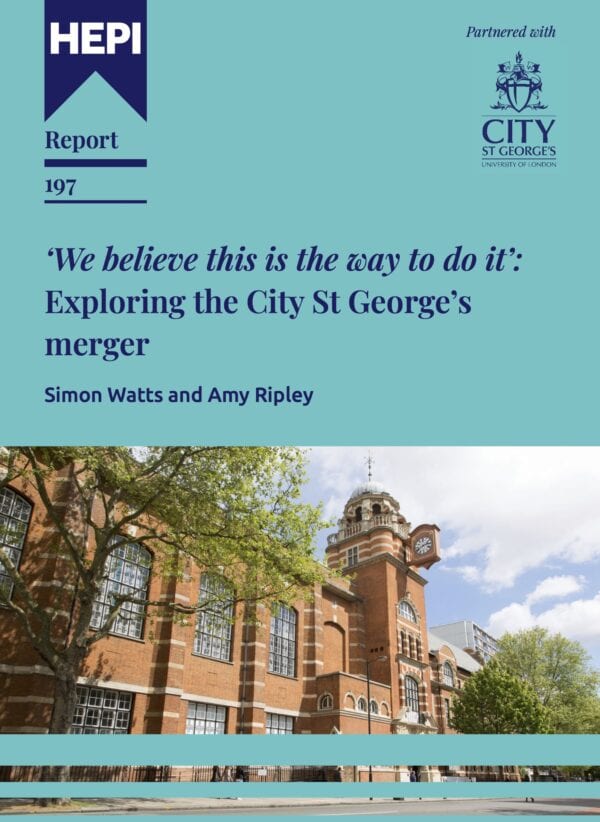How does UK research support Government’s five missions, and should universities align with them?
Earlier this year, HEPI, with support from global information analytics company Elsevier, hosted a roundtable dinner on how UK research and innovation should support the government’s five missions. This blog considers some of the themes that emerged from that discussion.
The Labour government has made clear that five missions drive its decisions on policy. These are: kickstarting economic growth, an NHS fit for the future, safer streets, breaking down barriers to opportunity and making Britain a clean energy superpower. In October 2024, it announced a £25 million R&D Missions Programme to address specific challenges involved in meeting these missions and to help turn scientific advances into real-world benefits.
How well do the UK’s research strengths already map to the missions, and how much capacity exists to do more? For global information analytics company Elsevier, this was worth interrogating. It set to work, drawing on its Scopus database of research publications and the Overton index of policy documents, clustering papers into topics and using artificial intelligence and large language models to link them to the missions.
This allowed it to track what share of UK research carried out between 2019 and 2023 relates to the missions the government has identified and how this compares to other policy areas, including how it has varied over time. Elsevier has also been able to make comparisons with the research strengths of other countries in these areas. The process involved developing a methodology that matched huge datasets to the narrative national goals set out in Labour’s manifesto.
The role of R&D in supporting government priorities was the subject of a roundtable dinner, informed by this analysis, hosted by HEPI in February and attended by policymakers and senior leaders from across the higher education sector. The discussion was held under the Chatham House rule, by which speakers express views on the understanding that they will be unattributed.
Useful information
Sarah Main, vice-president, academic and government relations at Elsevier, told participants that the aim of the analysis was to be useful, for the research community and policymakers, in making the case for continued investment in R&D in the lead up to a tight spending review.
The work shows that a significant share of the UK’s published research relates to government priorities: for example, 11% relates to growth and around 35% to its aims around health. By making comparisons with research outputs in other countries, it also identifies possible future partnerships and collaborations.
But she pointed out that research output is only one way in which research and innovation supports the government’s missions; people, skills and infrastructure also play a part. Further work, she said, could help identify the key people, institutions and areas in which the UK has relevant strengths, as well as suggest emerging questions and themes.
Many of those attending the roundtable felt that it was useful to see how far universities are producing research that supports government priorities and to be able to demonstrate this to policymakers – and the Treasury. They particularly welcomed the chance to identify where relevant research was taking place internationally.
It was suggested that the tool would be useful in maintaining a dialogue between research and government priorities, identifying quickly the kind of work taking place and who was doing it and helping to build communities around research areas.
Potential problems
But there were reservations about aligning research too closely with specific policy areas. The fear was that what could be lost in the process was curiosity-driven work, which was a feature of the UK system and which could lead to valuable nuggets of knowledge that could go on to solve world problems. Another concern was that innovation strengths did not always translate into strengths around delivery.
Some questioned how much could be achieved without investment in supporting a healthy research environment for the long term. The recent decision to cut overseas aid in favour of increasing the defence budget was an example of how quickly government policies could change.
Research priorities could change too. One participant in the roundtable said it would be important not to ignore findings from further back in the past or for policymakers to forget the broader research agenda in favour of the latest exciting paper.
‘I look at the missions and I think the reason these are possible is because of R&D that was being done 25 years ago,’ said one delegate, who was worried that concentrating on where the government is looking now could be at the expense of developing capability in the missions of future generations and working out what these would be – learning to live with robots perhaps or addressing chronic loneliness.
Focusing exclusively on missions also ignores how ready the research community is for a shock like Covid or another existential challenge. And what about some of the nuances of where the UK’s research strengths are located, such as working with other disciplines, and how research feeds into growth in more general ways than through specific papers? Relevant skills training and universities’ educational role are also important.
Talking politics
Then, how much weight should be given to a government’s stated priorities? If last July’s election had elected a party with the mission to make Britain great again, would the research community want to find out how far the work it was doing supported it?
Also, how far are the government’s missions likely to persist, with Donald Trump and Vladimir Putin doing everything they can to undermine them, as one delegate argued? Far more likely to determine whether the government gets re-elected will be progress on growth and healthcare, which have been consistent public concerns for decades. Even if, as Elsevier has found, 35% of research in the UK relates to health, ministers may respond by asking why, in that case, people are no healthier.
Some felt that universities needed to be more political and to understand better the channels by which research becomes policy and how to negotiate them. This could involve researchers considering the attitudes of the public as well as those of politicians.
The government may also need to give universities a clearer idea of what good looks like when it comes to universities, such as whether the amount of research related to healthcare that Elsevier has identified is good enough, where the government wants universities to be focusing and what resources will be available to them.
But spending too much time dabbling in politics could be dangerous. Instead, suggested one participant, universities should be engaging “at scale” with all sectors and everyone involved in the political process, giving advice to whoever needs it.
The public purse
Universities should also avoid dwelling on their own self-interest. One delegate noted that finding out how far they contribute to the government’s missions would be of little use if the sector collapses. But another suggested that focusing too closely on missions could encourage universities merely to highlight relevant work they are already doing and then make another request for money.
It is certainly the case that there will be plenty of other calls on the public purse over the next few months and years. In this context, it could be useful for the sector to stress the shorter-term wins relevant to the missions that management science or operational research can offer, as well as long-term gains such as new drugs. One delegate suggested that it would be useful to have clearer identification of where research has directly led to spin-out companies and economic growth.
The roundtable concluded that universities are clearly relevant to addressing the government’s missions, that they are already influencing policy and that the methodology under discussion could help inform strategy. But it recognised that outcomes – such as reduced crime and an efficient NHS – are what matter most to the public and these therefore should be the priority.







Comments
Add comment